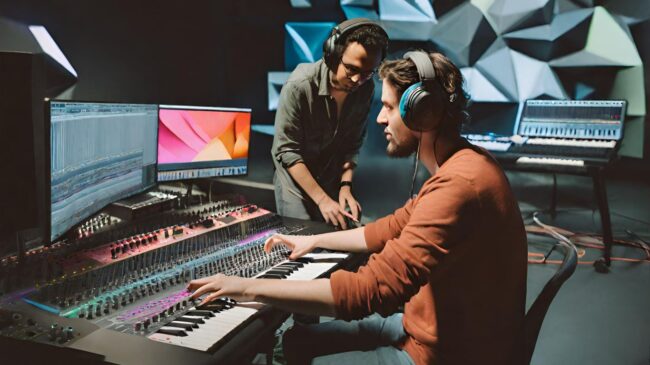The Harmony of Gaming: Delving into the Vital Distinction between Music and Sound Effects
The gaming industry, ever-evolving and immersive, has sparked a growing fascination with the art of sound composition. From the exquisite musical arrangement that envelops an emotional scene to the thunderous explosion resonating in an epic showdown, both music and sound effects play distinct and fundamental roles in crafting an engaging gaming experience.
1. The Emotion of Music:
Music in games plays a pivotal role in conveying emotions and establishing unique atmospheres. Composed specifically to complement the game’s narrative and context, the soundtrack can range from gentle, melancholic melodies to fast-paced, intense rhythms. It often serves as an emotional guide for players, amplifying tension in crucial moments or offering solace in calm intervals.
2. The Narrative of Sound Effects:
On the other hand, sound effects have the task of grounding the player in the virtual world, providing immediate feedback to their actions. From the simple click of a door opening to the roar of an explosion, sound effects are essential for immersion. They help create a sense of presence, adding layers of realism to the game environment and enhancing interactivity.
3. Harmonious Collaboration
Although distinct in their functions, music and sound effects often collaborate to create a cohesive sonic experience. Music can heighten the intensity of a climactic moment, while sound effects contribute to the realization of that climax. This harmonious collaboration results in a complete and impactful audiovisual experience.
4. Dynamic Adaptation
Modern technology has allowed for a more dynamic approach to implementing music and sound effects in games. Adaptive systems adjust the soundtrack based on player actions, while sound effects respond in real-time to changes in the environment. This not only enhances immersion but also creates a unique experience for each player.
5. Influence on Gameplay
Both music and sound effects have the power to directly influence gameplay. A well-orchestrated soundtrack can provide subtle hints or create expectations, while precise sound effects can alert players to imminent dangers. This subtle influence contributes to the overall experience, elevating the quality of the game.
Conclusão:
The Emotion of Music The Narrative of Sound Effects Harmonious Collaboration Dynamic Adaptation Influence on GameplayIn summary, music and sound effects play interdependent roles in creating unforgettable gaming experiences. Music, with its ability to evoke deep emotions, and sound effects, anchoring players in the virtual world, form a unique symphony that enriches and enhances the landscape of modern games. By understanding the distinct contribution of each element, developers can shape the sonic landscape of their games to resonate in the hearts of players, making each virtual adventure a unique and captivating auditory journey.

